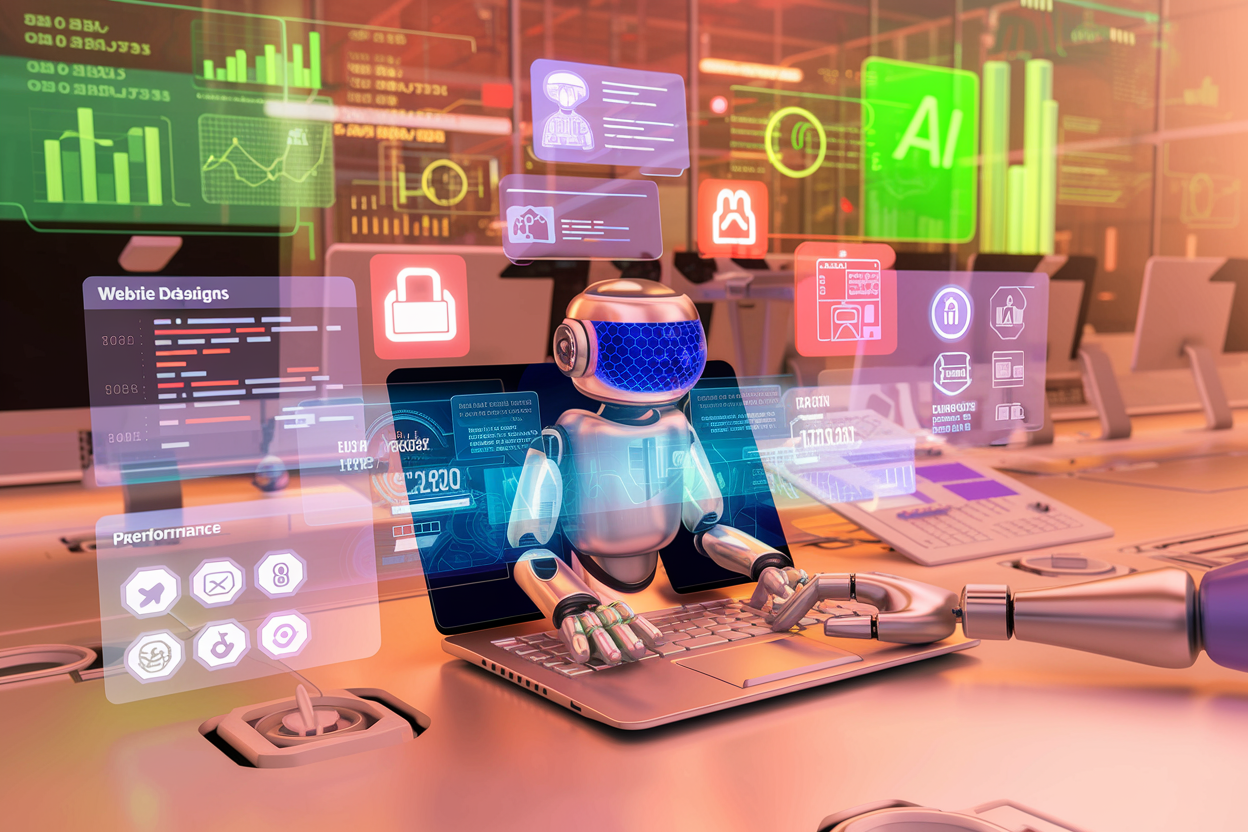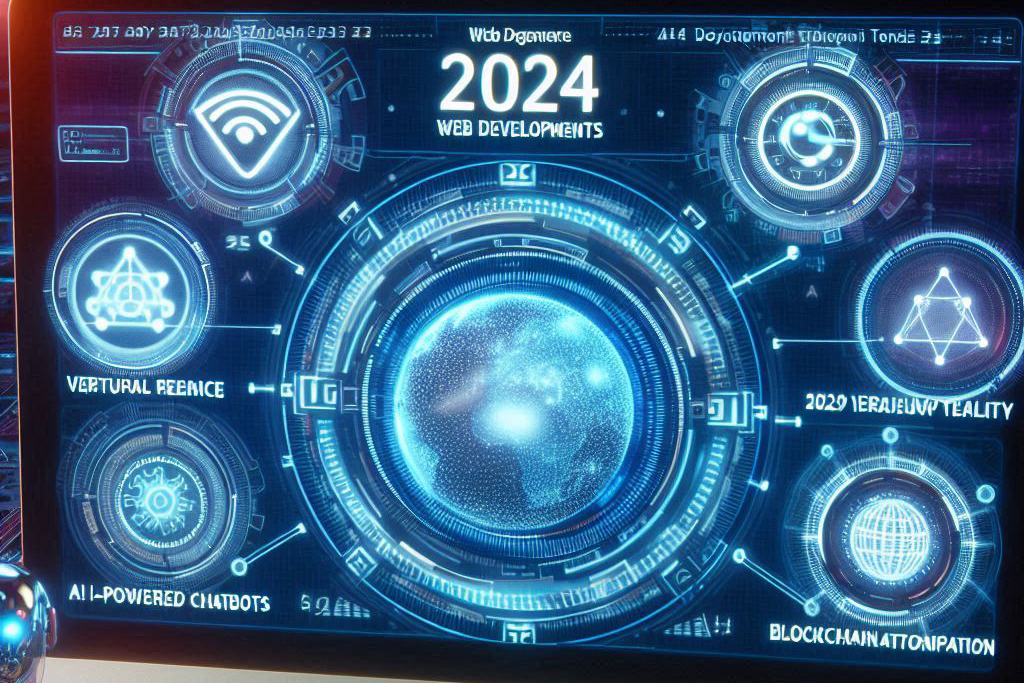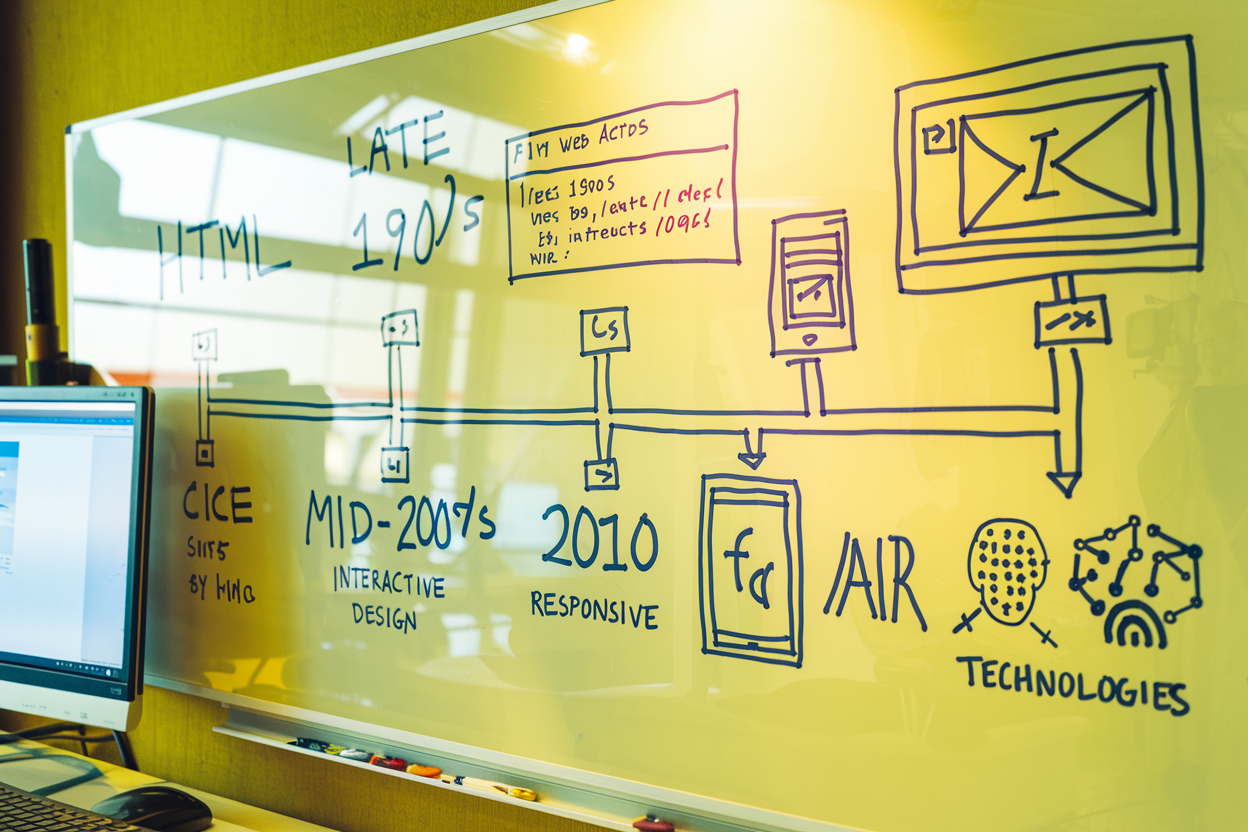AI in Web Development: How Machine Learning is Shaping the Future of Websites
By Kainat Chaudhary
Introduction to AI in Web Development
Artificial Intelligence (AI) and Machine Learning (ML) are increasingly becoming integral to web development, transforming how websites are designed, developed, and interacted with. These technologies enable websites to offer more personalized, efficient, and intelligent user experiences. This post explores the impact of AI and ML on web development and how these advancements are shaping the future of the web.
Personalized User Experiences
One of the most significant impacts of AI in web development is the ability to deliver highly personalized user experiences. Machine learning algorithms analyze user behavior, preferences, and interactions to tailor content and recommendations specifically to individual users. For example, e-commerce sites use AI to suggest products based on browsing history and purchase patterns, enhancing user engagement and conversion rates.
AI-Powered Web Design Tools
AI is revolutionizing web design with tools that automate and optimize the design process. Tools like Adobe Sensei and Wix ADI use machine learning to assist in creating visually appealing and functional website designs. These tools can analyze user input and generate design elements, layouts, and color schemes that align with current design trends and user preferences.
The future of web development lies in the seamless integration of AI and human creativity.
Intelligent Chatbots and Customer Support
AI-driven chatbots and virtual assistants are becoming essential components of modern websites. These intelligent systems use natural language processing (NLP) to understand and respond to user queries, provide real-time support, and assist with navigation. By handling routine inquiries and tasks, chatbots enhance user satisfaction and free up human resources for more complex interactions.
Optimizing Performance with AI
AI is also playing a crucial role in optimizing website performance. Machine learning algorithms can analyze traffic patterns, detect anomalies, and predict future trends, allowing developers to make data-driven decisions to improve site speed and reliability. Additionally, AI-powered tools can automatically adjust server loads, optimize images, and manage caching to ensure a smooth user experience.
AI in Web Security
Web security is another area where AI is making significant strides. Machine learning algorithms can identify and respond to security threats in real-time, detect unusual patterns of behavior, and protect against cyber attacks. AI-driven security systems can adapt to new threats and vulnerabilities, providing a robust defense mechanism for websites.
import numpy as np
from sklearn.ensemble import RandomForestClassifier
# Example dataset
X = np.array([[1, 2], [2, 3], [3, 4], [4, 5]]) # Features
Y = np.array([0, 1, 0, 1]) # Labels: 0 for non-threat, 1 for threat
# Initialize and train the model
model = RandomForestClassifier()
model.fit(X, Y)
# Predict new data
new_data = np.array([[2, 3]])
prediction = model.predict(new_data)
print(prediction) # Output: Prediction for the new dataFuture Trends in AI and Web Development
The integration of AI in web development is continuously evolving, with emerging trends likely to shape the future of the web. Innovations such as AI-driven content creation, advanced personalization techniques, and smarter web analytics are on the horizon. As AI technology advances, we can expect even more transformative changes in how websites are built and how they interact with users.
AI and machine learning are revolutionizing web development, offering new opportunities for enhancing user experiences, improving performance, and ensuring security. As these technologies continue to evolve, they will play an increasingly central role in shaping the future of websites and web applications.

Top Web Development Trends to Watch in 2024
Stay ahead in web development by exploring the top trends of 2024, from Progressive Web Apps and AI integration to serverless architecture and motion UI.

The Evolution of Web Design: A Look Back and Forward
Explore the fascinating journey of web design from its early days to modern practices. Discover key milestones, current trends, and future predictions shaping the web design landscape.

SEO and Web Design: How to Create Visually Appealing and Search-Friendly Websites
Learn how to combine SEO and web design to create websites that are both attractive and search engine friendly.

Animating with Lottie: A Designer's Guide to Lightweight Web Animations
Learn how to create lightweight, scalable animations with Lottie for your web projects. This guide walks you through the benefits of Lottie, how to implement it, and best practices for optimal performance.